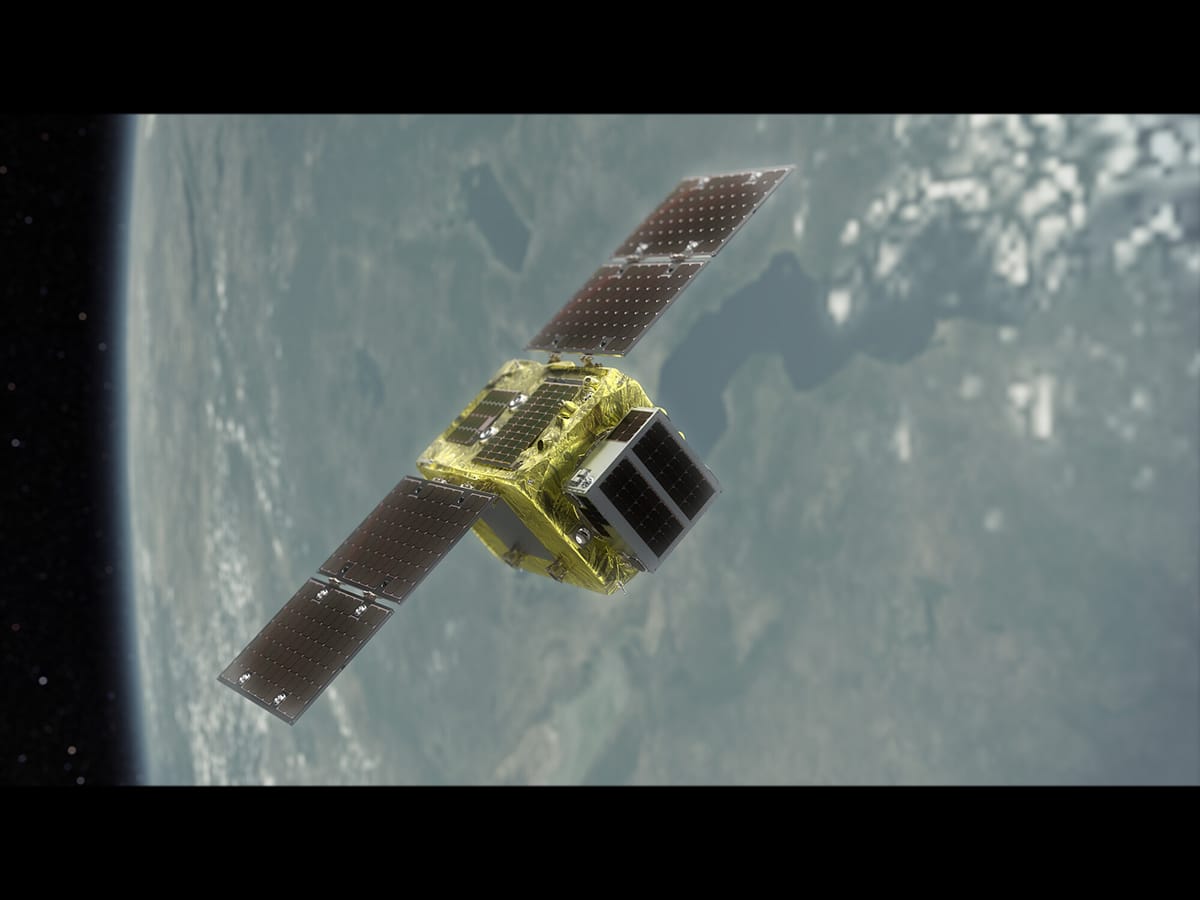
Source: © PR Times, Inc.
Japan’s Astroscale launches and places in orbit world’s 1st commercial debris removal satellite
- Tags:
- Astroscale Holdings Inc. / commercial satellite / ELSA-d / launch / orbit injection / satellite / SDGs / space debris
Related Article
-

Japan’s first high-rise condo to use 100% renewable energy to be completed in 2024
-

Ward off the curse of plastic waste with these Jujutsu Kaisen ecobags
-

Japanese sports drink’s returnable glass bottles have a cute retro design
-

Japanese project fuses art and Braille blocks to “create new paths” for the visually impaired
-

Moriyama Napoli’s “SDGs pizzas” feature non-gluten dough using oft-discarded okara soy pulp
-

Tour service Japonisme’s Pride Month campaign features discounted virtual tours, rainbow logo


Astroscale Holdings Inc., which is engaged in space debris removal services for a sustainable space environment, announced the successful orbit insertion of ELSA-d, the world's first commercial debris removal satellite.
ELSA-d, which stands for "End-of-Life Services by Astroscale - demonstration," was launched from the Baikonur Cosmodrome in Kazakhstan on March 22 (JST). The Soyuz rocket with ELSA-d onboard was launched at 3:07 p.m. (JST) and flew as planned, separating from the satellite at an altitude of about 550 km. The communication was confirmed to be normal by telemetry received from the satellite.
© PR Times, Inc.
The ELSA-d mission, the first in orbit demonstration of the core technology needed to capture and remove space debris, is an important step for Astroscale to expand its on-orbit services and achieve its vision of a safe and sustainable space for future generations.
© PR Times, Inc.
The ELSA-d was successfully launched, and its separation from the launch vehicle and injection into orbit were confirmed by the In Orbit Servicing Control Center in the UK. After that, the ELSA-d's onboard equipment will be checked and the initial operation phase will begin.
About Astroscale Holdings, Inc.
Astroscale is the world's first private company dedicated to the development of space debris removal services to ensure the safe navigation of space vehicles and to ensure sustainable orbits for future generations. Since its establishment in 2013, the company has been providing a variety of services to reduce and remove the increasing amount of debris in orbit, including end-of-life services to remove satellites that are reaching the end of their lifespan or have permanent failures, services to remove active debris, space situational awareness in space, and life extension of operational satellites. In addition to technology development, they are also working to establish business models and formulate space policies and best practices in collaboration with multiple private companies, organizations, and government agencies in order to achieve a safe and sustainable space environment over the long term.
The company operates globally in Singapore, the United Kingdom, the United States, and Israel, as well as in Japan, where it is headquartered and where its research and development facilities are located.
This video shows ELSA-d in action:
Space debris removal in fiction: Planetes
If you can't wait for a future where ELSA-d and its progeny are active, protecting the great expanse from the flotsam and jetsam created in humanity's push towards space, you can always read Yukimura Makoto's award-winning manga Planetes. Set in a world half a century from now when interstellar travel is commonplace, it follows a human crew tasked with cleaning up the dangerous amount of space debris that has amassed.
If you live in Japan, you can also catch the anime adaptation which is going to be streaming on Nico Nico Douga this weekend. Episodes 1-13 will air on March 27th from 18:00 (JST) and Episodes 14-26 will air on March 28th from 18:00 (JST).